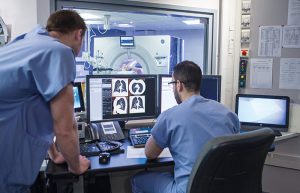Early detection of gastric cancer may not be too far off. Tokyo-based AI Medical Service, one of the first, real-time endoscopic artificial intelligence developers, has raised total funding of $57 million from investors like Sony Innovation Fund by IGV, Globis Capital Partners, and World Innovation Lab, to develop AI-centric software that can help identify these cancers early on. The system will help spot signs of cancer in real time during actual endoscopies and other systems.
Current funding for the new platform will be used for early clinical trials and development of the software, which can spot cancer in the gastrointestinal organs—stomach, intestines, and esophagus. The hope is that this software can help reduce the amount of time doctors and other specialists spend reviewing scans and other tests, giving them more time to fight and treat the disease. Additionally, AI Medical is also using the investment dollars to hire expert personnel and expand overseas—specifically in Thailand, Indonesia, and Singapore, where there are higher rates of stomach cancer—before moving on to the U.S. and Canada, according to a recent report.
Founded in 2017, the developers have already partnered with 80 medical institutions on joint research for regulatory approval of its products. In January 2018, the company, in conjunction with the Joint Research Group, published the world's first article on AI in gastric cancer—one of many exploring AI in colorectal and esophageal cancer, as well as capsule endoscopy AI.
So far, the international market for endoscopy is expanding 10% every year with manufacturers in Japan holding nearly 70% of this market, according to Dr. Tomohiro Tada, CEO of AI Medical Services. Research also shows that nearly 15% to 30% of lesions are missed during endoscopic procedures. The company wants to increase the accuracy of these scans all around and is applying for regulatory approval for its convolutional neural network to better analyze medical images.
"Our company was founded on the desire to solve issues with endoscopies in the clinics,” said Tada in a recent company statement. “In order to commercialize and deliver these products to society as soon as possible, we will make effective use of the procured funds. As our founding philosophy states, we plan to contribute to endoscopic medical treatment around the world.”























